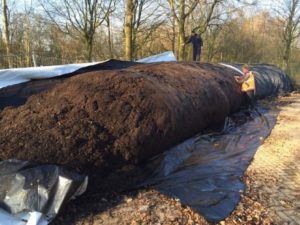 Land buyers and sellers need to be prepared for increased security checks due to new regulations over money laundering, warns the Central Association of Agricultural Valuers (CAAV).
Land buyers and sellers need to be prepared for increased security checks due to new regulations over money laundering, warns the Central Association of Agricultural Valuers (CAAV).
The Government has introduced a new, tighter regime of identity checking for property transactions in a bid to reduce the opportunities for criminal organisations to launder money or finance terrorist activity, says Kate Russell, policy and technical adviser at the CAAV.
“The requirements on agents selling and buying property have got a lot tougher as they now have to identify money laundering risks for the purchase – or sale – of houses, land, farms and commercial property. This means checking identities, confirming the source of funds and reporting any suspicious activity to the authorities.”
Buyers and sellers must therefore be prepared for increased security checks from land agents. “There are a number of different ways in which farmers can purchase property, and the security requirements will vary slightly depending on this,” explains Ms Russell.
“For those buying through private treaty, identification will be needed before an offer is accepted, whereas if you purchase through an auction you will have to register and confirm identification before you are allowed to bid. If you plan to acquire land via tender, buyers will have to confirm their ID as part of the tender process and before an offer is accepted.”
In cases where the buyer or seller is a trust, charity or a limited company, agents will also require information on the “beneficial owners” – those who own or benefit from the organisation, including trustees, beneficiaries, shareholders or directors, she adds.
Though agricultural sales may rank fairly low in terms of risk for fraud and money laundering, relying on the fact you have known a land agent for years is no longer sufficient – they will still have to check your identification and assess the risk of money laundering or terrorist financing in the transaction. Getting your documents in order can therefore reduce time and hassle for all parties involved, adds Ms Russell. “It is a legal requirement to provide the necessary documentary evidence – so please be understanding and be prepared.”
For more information visit www.caav.org.uk.



